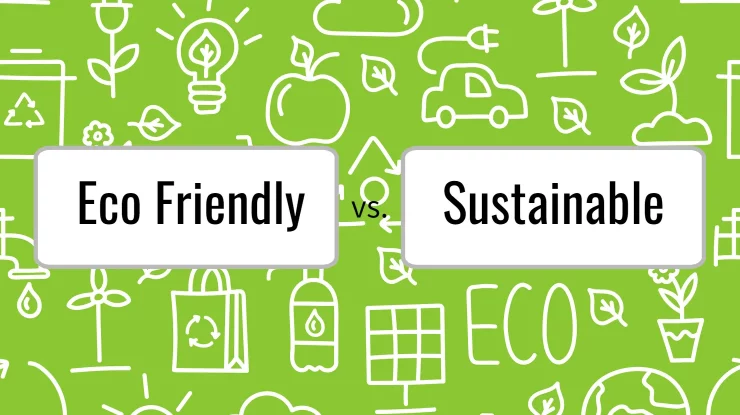
Sustainable and Eco-Friendly Automotive Practices 2024: Driving Towards a Greener Future – The automotive industry is undergoing a profound shift towards sustainability, driven by the imperative to reduce environmental impact and address climate change concerns. From manufacturing processes to vehicle design and end-of-life considerations, sustainable and eco-friendly automotive practices are shaping a greener future. In this article, we explore the key components of these practices and their impact on both the industry and the planet.

Green Manufacturing Processes: Reducing Environmental Footprint
Green manufacturing practices in the automotive industry focus on minimizing environmental impact throughout the production chain. This includes the adoption of energy-efficient technologies, waste reduction measures, and the use of eco-friendly materials. Sustainable manufacturing not only reduces the carbon footprint but also sets the stage for environmentally conscious vehicle production.
Lightweight Materials and Fuel Efficiency: Enhancing Sustainability on the Road
Vehicle design plays a crucial role in promoting sustainability. The use of lightweight materials, such as aluminum and carbon fiber, contributes to fuel efficiency and reduced emissions. Lighter vehicles require less energy to propel, leading to improved fuel economy and lower greenhouse gas emissions during operation.
Electric and Hybrid Vehicles: Transitioning to Low-Emission Mobility
The rise of electric and hybrid vehicles represents a pivotal shift towards low-emission mobility. Electric cars produce zero tailpipe emissions, and hybrid vehicles combine internal combustion engines with electric propulsion, reducing overall fuel consumption. The widespread adoption of these vehicles is a key strategy in achieving a more sustainable automotive future.
Sustainable Fuel Alternatives: Beyond Traditional Combustion
Exploring sustainable fuel alternatives is a critical aspect of eco-friendly automotive practices. This includes biofuels, hydrogen, and synthetic fuels produced through renewable processes. Diversifying the fuel landscape contributes to reducing reliance on fossil fuels and mitigating the environmental impact of traditional combustion engines.
End-of-Life Vehicle Recycling: Closing the Sustainability Loop
Eco-friendly practices extend to the end of a vehicle’s life cycle. End-of-life vehicle recycling involves reclaiming materials, such as metals and plastics, for reuse. This circular approach minimizes waste and reduces the environmental impact associated with the disposal of automotive components.
Eco-Conscious Vehicle Design: Prioritizing Recyclability
The design of vehicles is increasingly focused on recyclability. This involves using materials that are easily recyclable and separating components to facilitate efficient recycling processes. Eco-conscious design principles are integral to creating vehicles with a reduced environmental footprint from production to disposal. (Read More: Electric Vehicles EVs: Shaping the Future of Transportation in 2024)
Sustainable Supply Chain Practices: Ethical and Responsible Sourcing
Promoting sustainability in the automotive industry extends to supply chain practices. Manufacturers are increasingly adopting ethical and responsible sourcing of materials, ensuring that the extraction and processing of raw materials adhere to environmental and social standards. Sustainable supply chain practices contribute to a holistic approach to eco-friendly manufacturing.
Green Infrastructure and Charging Networks: Supporting Electric Mobility
The development of green infrastructure, including renewable energy-powered charging stations, is crucial to supporting the growing number of electric vehicles on the road. Sustainable charging networks ensure that the environmental benefits of electric mobility extend beyond the vehicle itself.
Corporate Social Responsibility (CSR) Initiatives: Industry Commitment to Sustainability

Many automotive companies are embracing Corporate Social Responsibility (CSR) initiatives, committing to environmentally friendly practices and community engagement. This includes investments in renewable energy projects, community outreach programs, and initiatives aimed at reducing the overall environmental impact of the automotive industry.
Consumer Awareness and Education: Driving Sustainable Choices
Empowering consumers with knowledge about sustainable and eco-friendly automotive practices is essential. From choosing fuel-efficient vehicles to understanding the environmental impact of manufacturing processes, informed consumers play a pivotal role in driving demand for greener automotive solutions.
Conclusion article Sustainable and Eco-Friendly Automotive Practices 2024: Driving Towards a Greener Future
In conclusion, sustainable and eco-friendly automotive practices are paving the way for a greener and more environmentally responsible automotive landscape.* The industry’s commitment to reducing its environmental footprint spans from manufacturing and design to fuel alternatives and end-of-life considerations. As these practices become integral to the automotive ethos, the vision of a sustainable and eco-friendly future on the roads comes closer to realization. By embracing these principles, the automotive industry is not only addressing immediate environmental concerns but also setting the stage for a more sustainable and responsible future of mobility.
Read More: Autonomous Driving Technology: Navigating the Road to Self-Driving Cars








1 thought on “Sustainable and Eco-Friendly Automotive Practices 2024: Driving Towards a Greener Future”
Comments are closed.